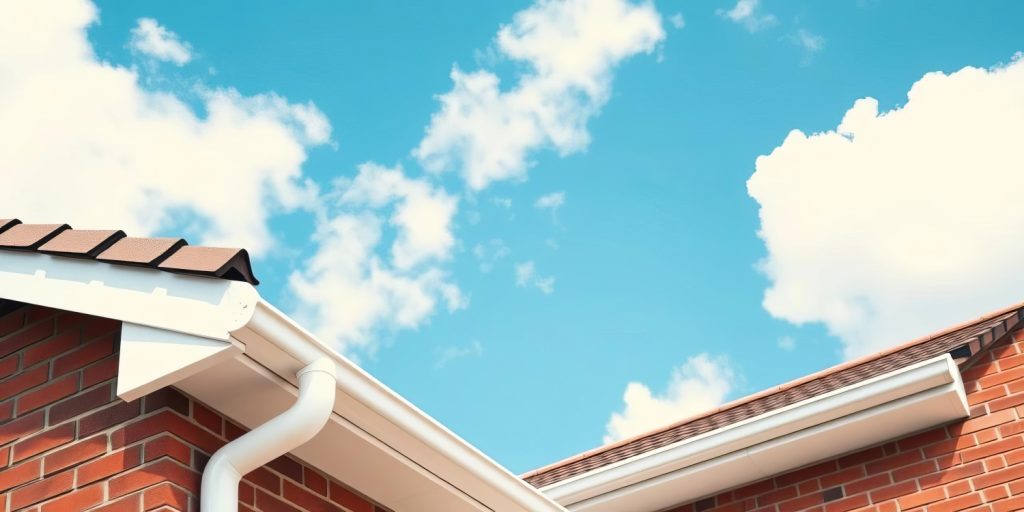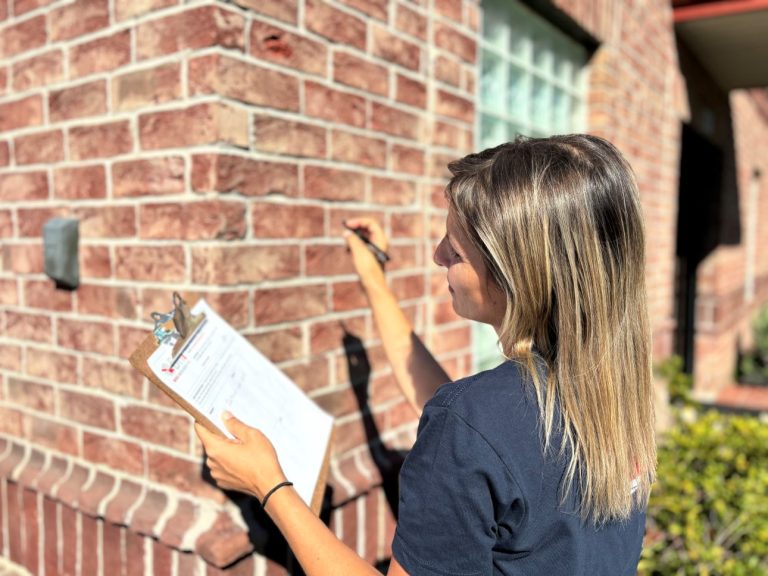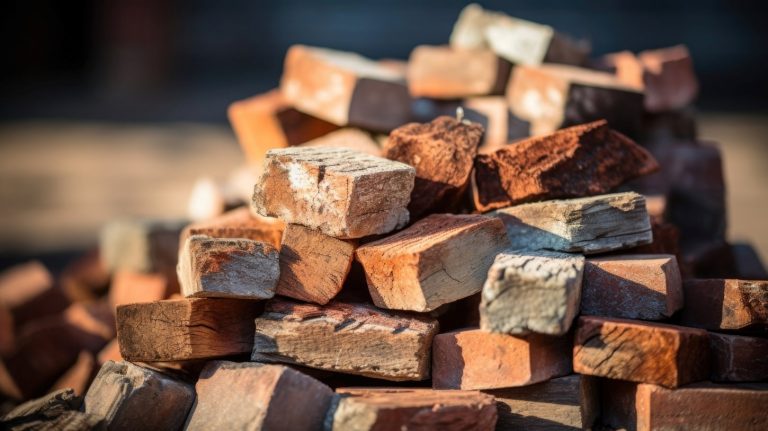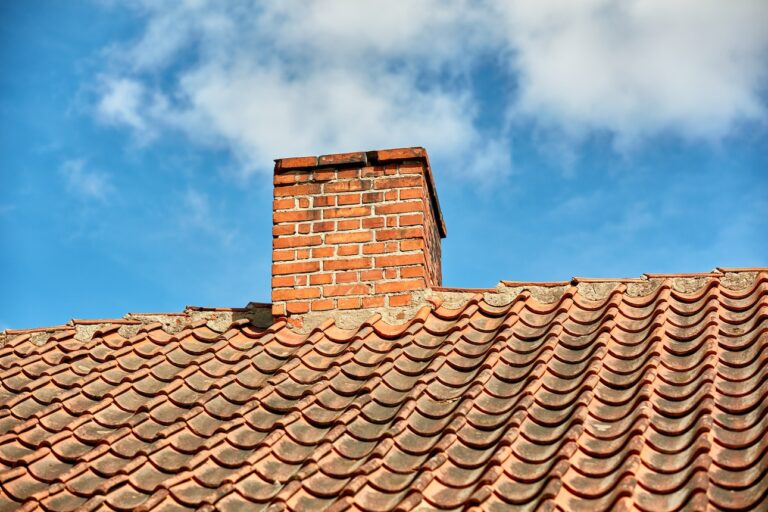Houston’s subtropical climate brings with it a unique set of challenges for homeowners, particularly when it comes to maintaining brick and mortar structures. With humidity levels frequently soaring above 60%, paired with intense heat and heavy rainfall throughout the year, these conditions can have a serious impact on the integrity of your home or property’s brickwork.
Over time, constant exposure to moisture and temperature fluctuations can weaken mortar joints, lead to cracking, and compromise the overall stability and appearance of your brick walls.
In this article, we’ll explore seven major ways that Houston’s humidity affects your masonry, and we’ll share trusted restoration tips and preventative solutions from the experts at Brick Restoration, Inc. to help you protect your home.
Understanding Houston’s Climate
Houston’s summer humidity routinely exceeds 70 % RH, and even winters stay relatively moist. The Gulf Coast influence brings heavy seasonal rains and occasional cold snaps. While freeze‑thaw cycles are rare, any moisture trapped in brick and mortar can still cause damage even with just a few cold nights.
What Mortar Joints Are and Why They Matter
Mortar joints such as concave or V‑joints fill the gaps between bricks. Their quality and compaction determine resistance to moisture ingress. Mortar generally ages faster than brick, as the softer mix absorbs moisture, cracking and crumbling over time.
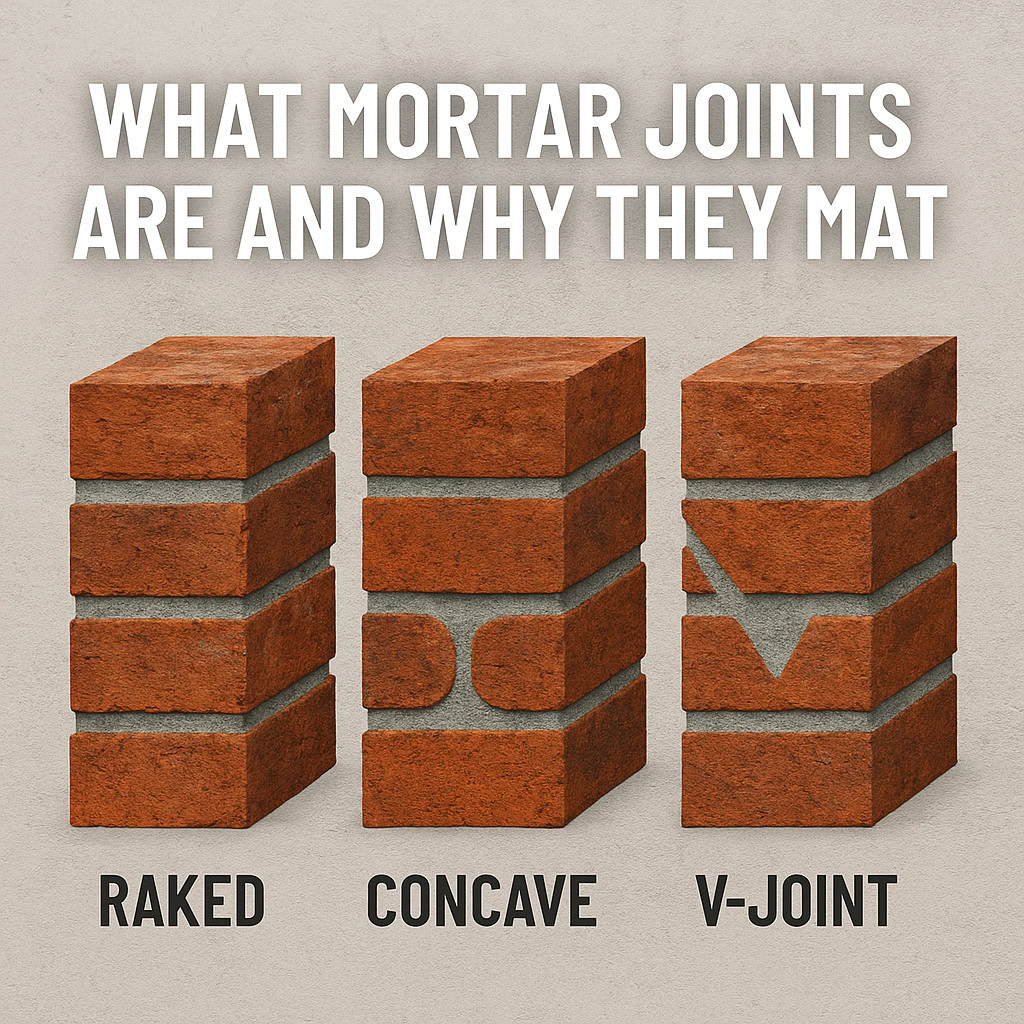
High Humidity’s Effects on Mortar Curing
High relative humidity slows mortar curing, prolonging soft‑state and weakening early strength. In construction or repair work, this decreases load-bearing ability and increases vulnerability to moisture damage.
Moisture Penetration and Water Intrusion
Cracked mortar joints or degraded sealants allow water to seep into the wall cavity. Houston’s frequent rainstorms worsen this. Once inside, moisture accelerates mortar deterioration and can lead to mold or interior damage.
Proper flashing, weeping holes, and landscaping drainage are essential to channel water away and maintain joint integrity.
Efflorescence, Mold & Biological Growth
White powdery salt stains called efflorescence on bricks signal moisture migrating through masonry and depositing salts at the surface, often leaving hidden damage behind.
Inside wall cavities, humidity encourages mold growth, which can affect indoor air quality and trigger health concerns in tightly sealed Houston homes.
Spalling and Brick Surface Damage
Even in mild Houston winters, moisture trapped in brick pores can cause spalling, flaking or surface loss as temperatures dip. Moisture loss and absorption cycles eventually weaken bricks, leading to structural safety concerns.
Compression Mismatch: Hard Mortar in Humid Climates
Using overly stiff Portland‑cement mortar in humid climates hinders moisture evaporation. Moisture remains trapped longer in bricks, which may fail (spall) before the mortar does. Softer lime‑based mortar wicks moisture and allows it to evaporate more naturally.
Structural Movement and Thermal Stress
Humidity and heat cause building materials to expand; nighttime cooling contracts them. This cycle of expansion and contraction stresses mortar joints, leading to micro‑cracks and separation over time.
Preventive Maintenance Tips for Houston Homes
- Inspect annually, especially after storm season, for cracks, separation, efflorescence, or crumbling mortar.
- Use repointing (tuck point) with lime‑based mortar selected for moisture-absorbent and wicking properties.
- Maintain sealants, flashing, gutters, and downspouts to prevent rain intrusion.
- Ensure drainage and clear weep holes allow moisture to escape behind brick veneers.
When to call Brick Restoration, Inc.
If you notice repeated moisture stains, deteriorating mortar, or spalling bricks, it’s time to bring in expert restoration. Brick Restoration, Inc. specializes in Houston‑area masonry issues, moisture mitigation, and high-quality joint repair.
Cost-Benefits of Proactive Repairs
Early repointing or targeted tuckpointing is simpler and much less expensive than replacing bricks or rebuilding sections. Also, matching original mortar type (softer lime-based vs. hard cement) reduces future deterioration and helps preserve historic charm.
Frequently Asked Questions
How frequently should mortar joints be inspected in Houston?
Annually—especially after rainy or hurricane seasons.
Can I repoint with regular Portland cement?
Not recommended in Houston’s humid climate. Lime-based mortar breathes better and is less likely to trap moisture.
What are weep holes and why are they important?
Small openings at the base of veneer walls to drain moisture—essential to prevent water buildup.
Is efflorescence harmful or purely cosmetic?
It’s a warning sign—moisture is migrating through masonry, which may indicate deeper joint deterioration.
Does Houston freeze-thaw cause spalling?
Yes—rare cold snaps plus trapped moisture can trigger flaking damage in saturated bricks.
What’s the difference between repointing and tuckpointing?
Repointing renews deteriorated mortar. Tuckpointing enhances appearance by pairing colored mortar lines—both useful depending on needs.
Will sealing masonry joints stop humidity damage?
Sealants help but must be properly maintained and combined with good drainage and flashing.
How can I reduce indoor mold risk from brick wall moisture?
Improve ventilation, keep internal humidity below 50 %, and repair external moisture pathways.
Conclusion
Houston’s high humidity and frequent rainfall create an environment that accelerates brick and mortar joint deterioration. From slowed mortar curing and efflorescence to spalling and mold, the risks are real but avoidable. Through regular inspections, proper repointing with lime-based mortar, and proactive drainage and sealant maintenance, homeowners can protect their brick structures for decades.
Brick Restoration, Inc. offers specialized diagnostic assessments, moisture mitigation strategies, and expert masonry restoration tailored to Houston’s climate. Be proactive to preserve both beauty and structure before minor issues become major.
Let Brick Restoration, Inc. help you safeguard your home from Houston humidity.


